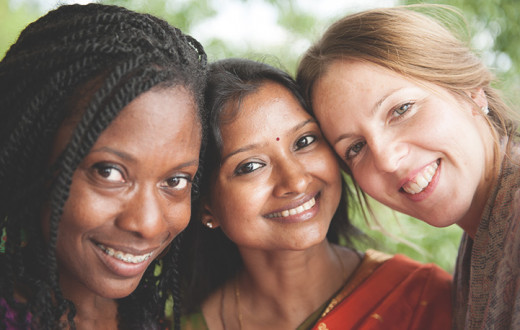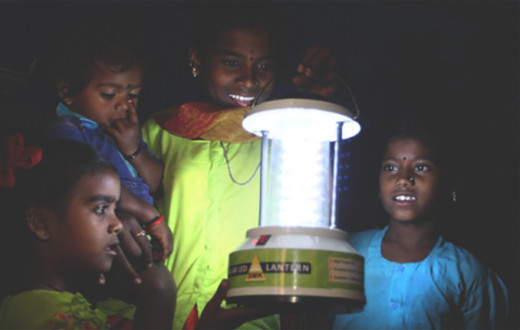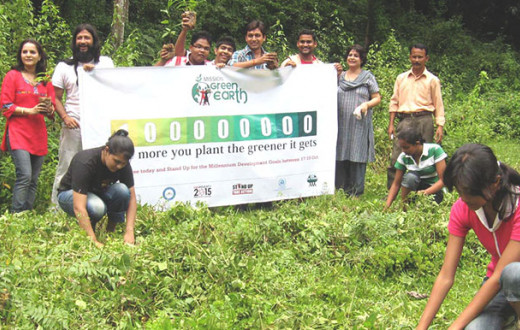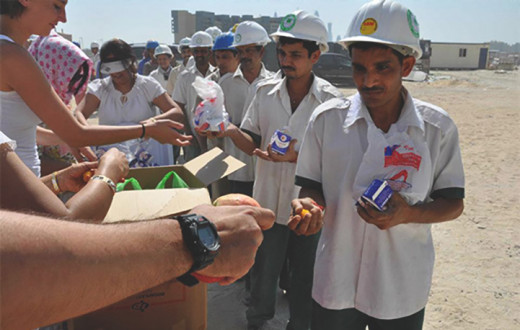“A staggering 3.6 billion tons of untreated sewage flows daily into the Yamuna and the river supplies 60% of the water needed by the Delhi region. The situation is dire. We need to act now. And one single organization or entity cannot do things all by itself. Only collectively can this clean-up be possible."
~ Gurudev Sri Sri Ravi Shankar at the inauguration of the Meri Dilli Meri Yamuna (MDMY) campaign on March 16, 2010.
The next day, a large crowd of people descended on the ITO ghat in Delhi. Led by Gurudev Sri Sri Ravi Shankar, the group went upriver in a boat and fished out plastic, clothes, rotting debris, and images of worship from the waters. Volunteers from The Art of Living community worked for the previous 15 days to pile up bags which were loaded into garbage trucks. However, the stench took a long time to go away.
Nevertheless, volunteers began cleaning the ghats for over eight days, including the Wazirabad, Nizamuddin and Kalindi Kunj ghat. This was the start of the Meri Dilli Meri Yamuna (MDMY) campaign which aimed at mobilizing the citizens of Delhi to clean the river.
Why is the Yamuna river cleaning important?
Delhi depends on the Yamuna river for more than 60 percent of its water-related needs. The river is greatly significant for the economic and ecological needs of the region and its people. However, over the years huge amounts of chemicals, plastic, and other non-biodegradable pollutants have disturbed the ecological balance of the river. More than half of the estimated 3.6 billion tons of sewage produced daily in Delhi flow into the Yamuna untreated. Numerous attempts to rectify this have not had much success.
Campaign beyond cleaning
Cleaning up the place was of utmost importance. Equally imperative was to garner more citizen participation and increase awareness about the damage to the environment.
Volunteers worked round the clock to spread awareness about this campaign. They ran free breath-water-sound workshops for villagers, special workshops for children and gave talks to create awareness and encourage people to join in. Millions of Delhi citizens came together to support this project. Several NGOs, corporates, and ministries also extended support to the project.
Thus, the campaign expanded:
Motivated 2,150 children to participate in MDMY through special workshops
Promoted environment care through talks to 1,300 people, including farmers, parents, professionals (National Thermal Power Corporation), and 200 village representatives
Held customized stress management workshops for 525 people from underprivileged sections to encourage greater participation
Many other programs were launched such as the 'Health Walk' and the 'Clean Delhi Drive'
108 Lakshmitaru saplings were planted and nurtured.
Immunization programs and medical camps for slum dwellers around the ghats organized
Story Credit: The documentation team, Art of Living Bureau of Communication
Published on: March 2010







